Highlights from Medicine and Life Sciences Research Communities
Published in Cancer, Cell & Molecular Biology, and Genetics & Genomics
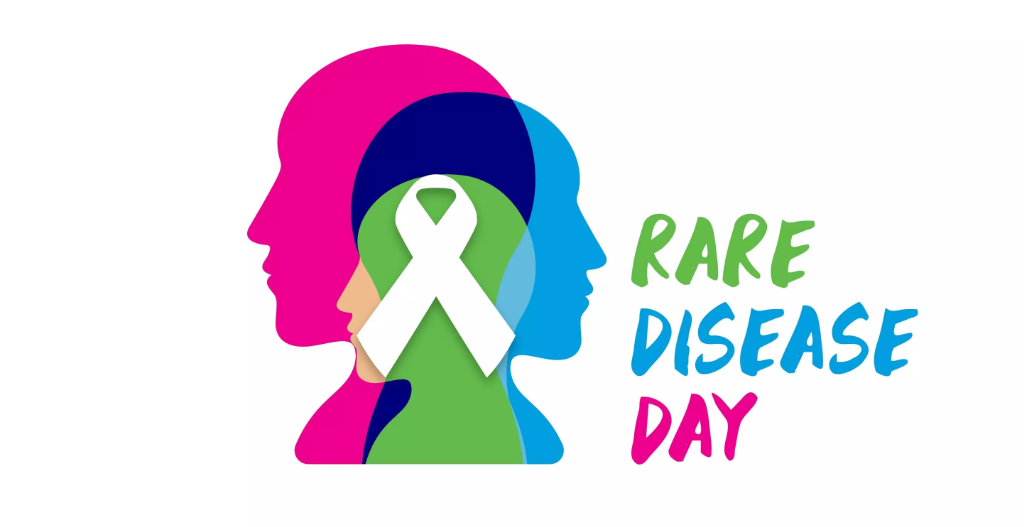
To mark Rare Diseases Day 2025 on the 28th of February, I wanted this month’s round up of blog posts to highlight authors who are sharing important information on different aspects of rare diseases. I hope these highlights will help you learn more about how Rare Diseases Day is helping achieve equitable access to diagnosis, treatment, and social opportunity for people affected by a rare disease.
What is a rare disease?
A disease is considered rare if it affects fewer than 1 in 2,000 people. There are over 6,000 rare diseases, each with a wide range of disorders and symptoms that can vary not only between different diseases but also among individuals with the same condition. Approximately 72% of rare diseases have a genetic origin, and nearly 1 in 5 cancers is classified as rare.
What is Rare Disease Day?
Rare Disease Day is dedicated to raising awareness for the 300 million people worldwide who live with a rare disease, along with their families and caregivers. The campaign's long-term goal is to promote access to diagnosis, treatment, healthcare, social support, and opportunities for those affected by rare diseases.
For more information on Rare Diseases Day 2025, visit the Rare Disease Day website.
Five highlighted blog posts focused on rare diseases:
How can connecting rare disease data transform care?
@Antonio Atalaia
Fragmented rare disease registries historically have prevented data sharing and hindered disease diagnosis, treatment, and much-needed research. To address this challenge networks of healthcare providers came together to form the European Reference Networks (ERNs) with the aim of providing improved care for those with rare diseases by enabling secure data exchange without transferring sensitive information. Following publication in the Orphanet Journal of Rare Diseases, the team behind this work shared their insights and experiences of setting up and scaling the Networks with us - read their blog to find out more.
Improving the well-being and communication abilities of women with Turner Syndrome
@Lauren Mann
Individuals with Turner Syndrome (TS) face lifelong communication challenges due to early conductive and progressive sensorineural hearing loss. This powerful study investigates the vital impact of treatment for hearing loss on communication confidence and quality of life for affected women. Every voice deserves to be heard, so read here to learn how the authors are building on their published work to help contribute to the improvement of lives for women with TS.
Why are patients and families essential in shaping the future of medicine?
@Jordi Pijuan
A ‘Behind the Paper’ blog post discussing an Orphanet Journal of Rare Diseases publication explains how patient involvement in clinical research is a crucial driver of progress in developing treatments for rare diseases. The authors brilliantly expresses that the perspectives and experiences of patients and their families should be acknowledged, valued, and incorporated at every stage of the research process, from defining study objectives to assessing outcomes. Read more here.
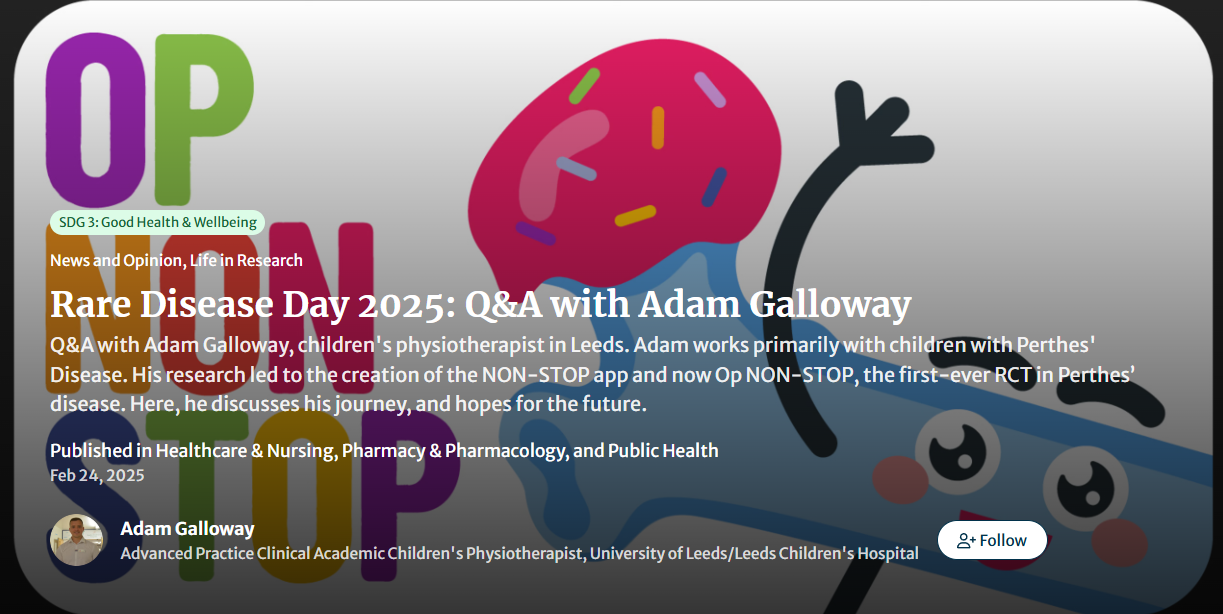
Personal reflections and hope for Perthes’ Disease management in children
@Adam Galloway
Perthes’ Disease is a rare condition that affects the hip joint in children. Adam Galloway, an ambassador for Medics for Rare Disease, discusses the app that he has developed for the self-management of Perthes’ Disease. Read about his journey, the app’s creation and his hopes for the future here.
Rare Diseases highlighted by Springer Nature publishers and articles
@Lisa Hodgkinson
I haven’t been the only one at Springer Nature to focus my attention on Rare Diseases Day in 2025. Read the blog by Lisa Hodgkinson to see what is happening across Springer Nature Journals and the ISRCTN clinical study registry. Hear from Lisa as she explores more about how Rare Disease Day 2025 aims to drive research, improve patient care, and advocate for the rights and needs of those affected by these unique conditions by reading the full blog.
For more reading from the Research Communities about rare diseases, please visit these student essay submissions focusing on how illness perceptions shape the identity of children with rare diseases by Lois Williams, challenges of conducting research in rare disease populations by Katie Whitcher, and exploring challenges faced by young people with rare diseases by Sindhu Khanna.
There is always an abundance of amazing research stories being showcased on the Research Communities. To explore more, visit the Behind the Paper channel and learn what thoughts and ideas go on behind the scenes of research projects.
Don’t forget to like and start conversations in the comment section of the posts you enjoy. Is there more you would like to learn from the author? Let them know in their post’s comments!
Follow the Topic
-
Orphanet Journal of Rare Diseases

An open access, peer-reviewed journal that encompasses all aspects of rare diseases and orphan drugs and publishes high-quality reviews on specific rare diseases.
Your space to connect: The Primary immunodeficiency disorders Hub
A new Communities’ space to connect, collaborate, and explore research on Clinical Medicine, Immunology, and Diseases!
Continue reading announcementRelated Collections
With Collections, you can get published faster and increase your visibility.
Advances in Our Understanding of Glutamatergic Receptor Biology: Selected Papers from the 7th European GRIN Conference
This Collection showcases selected research presented at the 7th European GRIN Conference, where families, clinicians, and scientists gathered to explore the latest discoveries in GRI disorders.
The featured papers delve into the biology of NMDA and AMPA receptors, their gene variants, and their clinical implications, offering insights into complex symptomatology and emerging therapeutic approaches.
Reflecting the collaborative and translational nature of the event, this Collection bridges foundational science with real-world impact, aiming to improve outcomes for individuals affected by GRI-related conditions.
All submissions in this collection undergo the journal’s standard peer review process. Similarly, all manuscripts authored by a Guest Editor(s) will be handled by the Editor-in-Chief. As an open access publication, this journal levies an article processing fee (details here). We recognize that many key stakeholders may not have access to such resources and are committed to supporting participation in this issue wherever resources are a barrier. For more information about what support may be available, please visit OA funding and support, or email OAfundingpolicy@springernature.com or the Editor-in-Chief.
Publishing Model: Open Access
Deadline: Jun 15, 2026
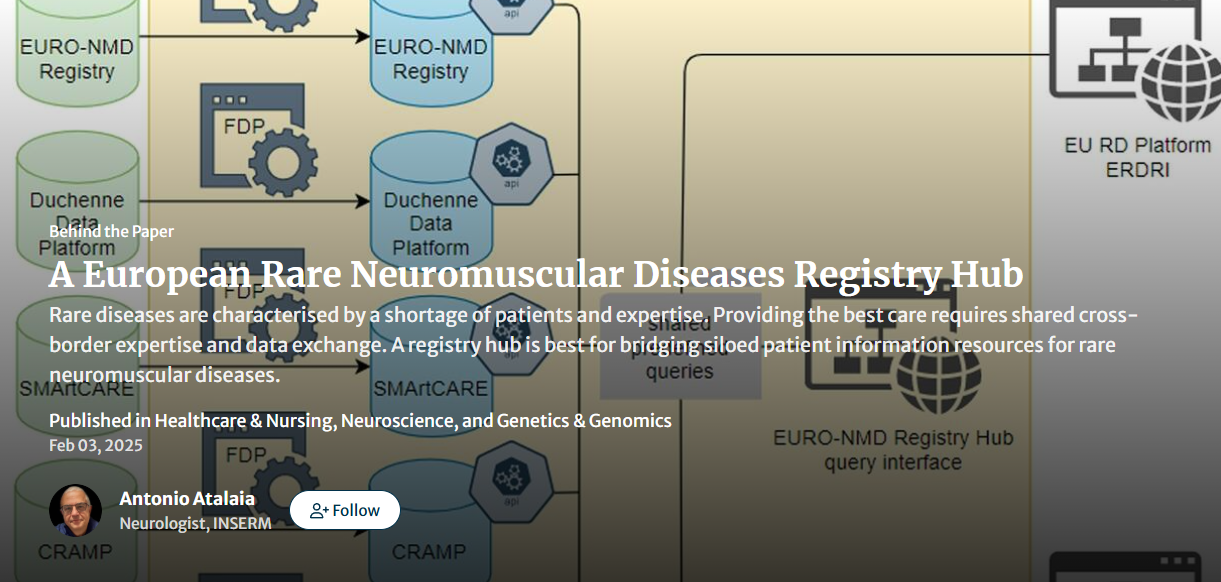
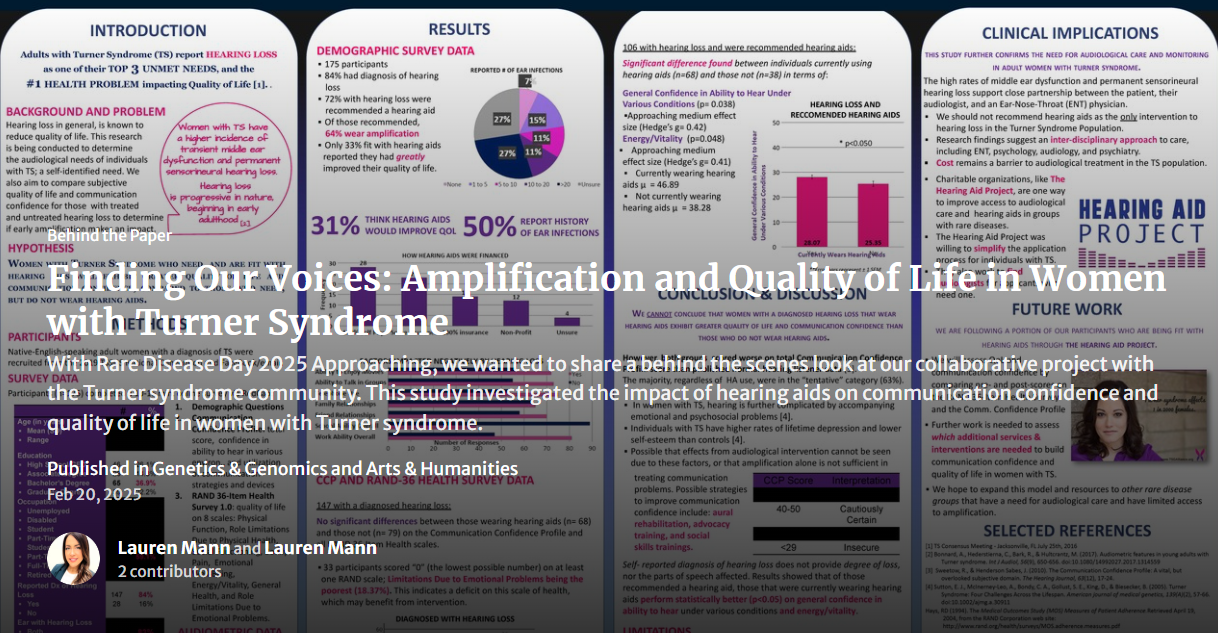
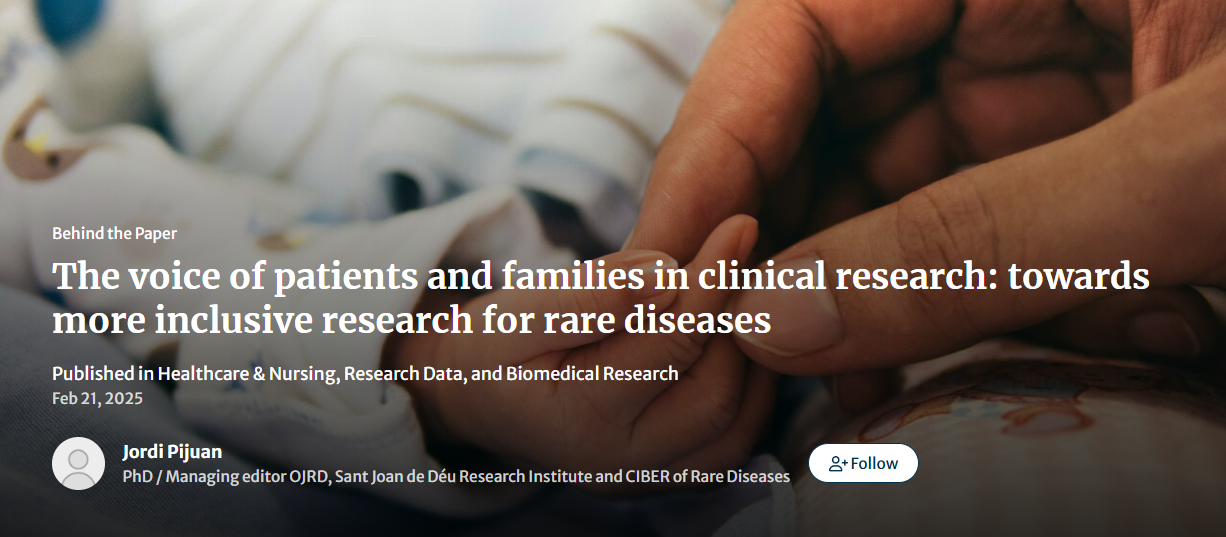
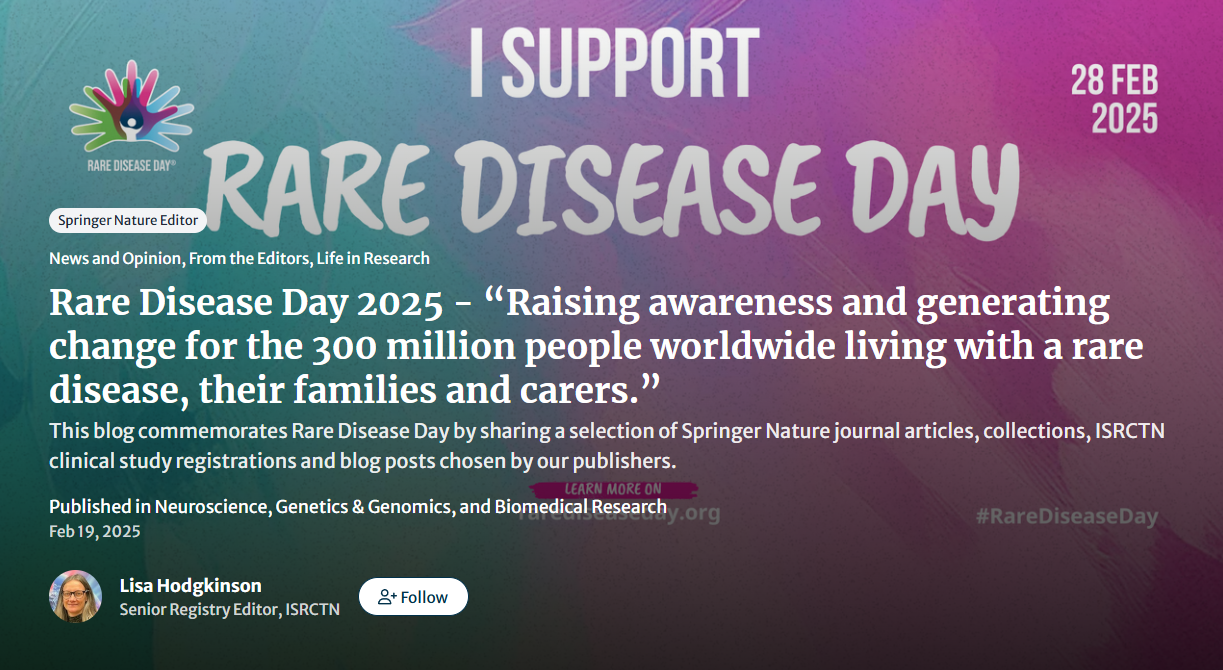
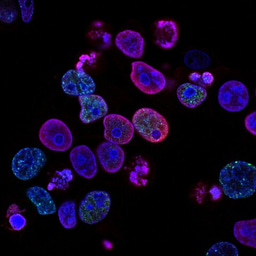




Please sign in or register for FREE
If you are a registered user on Research Communities by Springer Nature, please sign in
Thank you for sharing these very high-quality and impactful papers, Alice! The application of AI to scientific research is revolutionizing medical research! Please consider reading and commenting on my most recent publication in this space:
https://rdcu.be/d6YAY